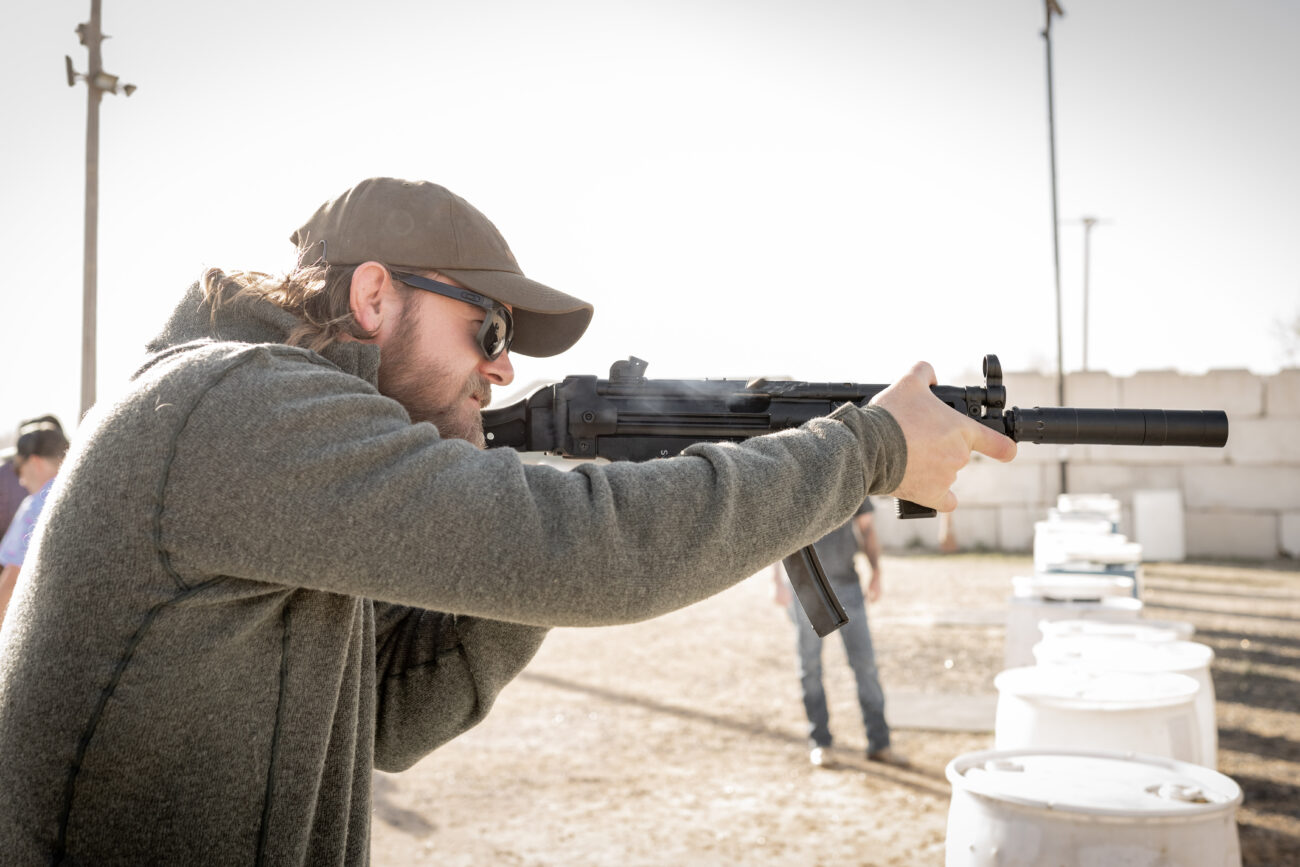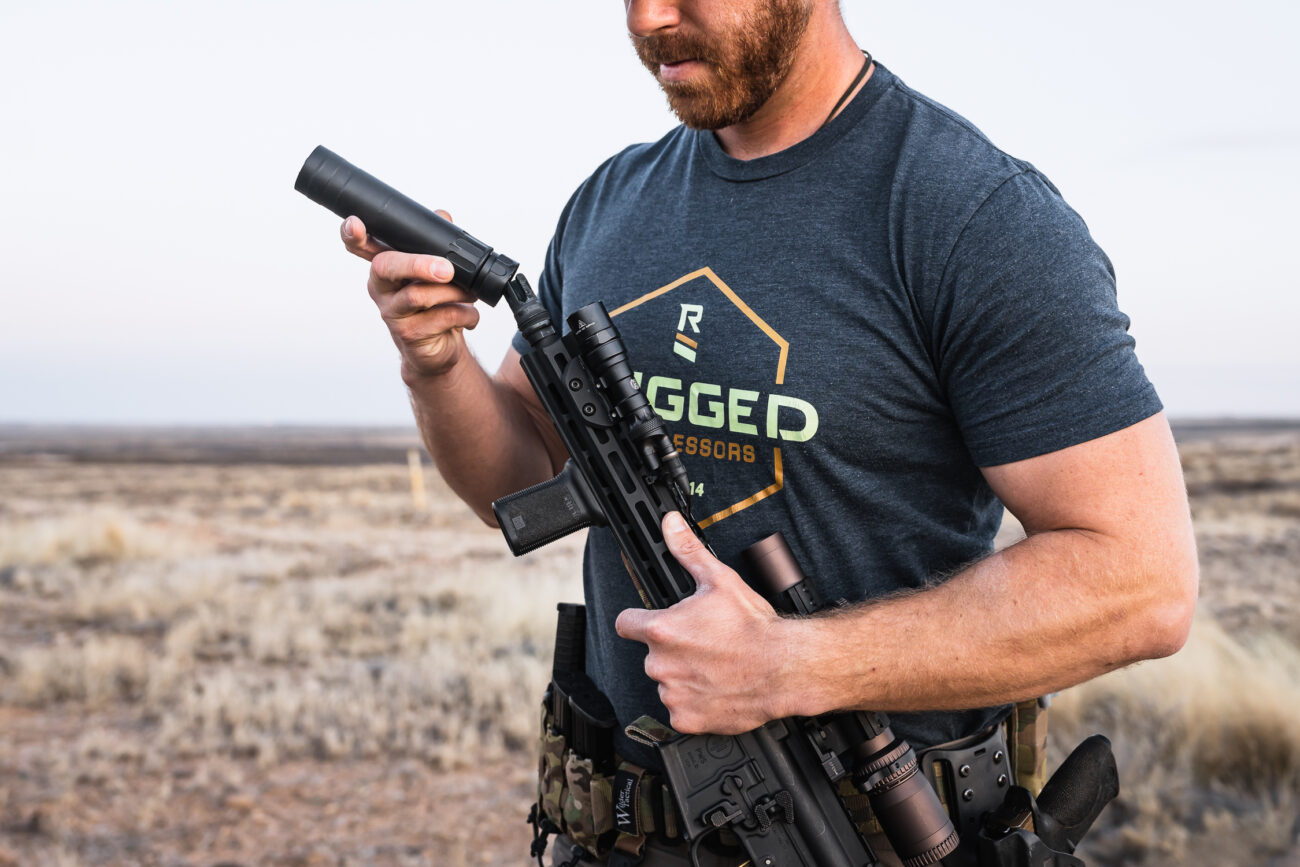How to Align a Muzzle Brake with Shims

Are Suppressors Illegal?
It’s a question that has often left many firearm enthusiasts puzzled, thanks to the myths and misconceptions surrounding these devices, often dubbed “silencers” or “cans.” The truth is that suppressors have a long history dating back over a century, with the first commercially viable model designed by Hiram Maxim in 1902. Back then, owning a suppressor was as simple as buying any other firearm accessory. However, the landscape changed with the National Firearms Act of 1934, ushering in regulations and the infamous $200 tax stamp requirement. So, are they illegal? Well, the answer is yes they are, but it is a bit more complex. In this guide, we’ll delve into the legalities, the application process, and debunk some common myths surrounding suppressors. Whether you’re a seasoned shooter or a newcomer to the world of firearms, understanding the facts about suppressor ownership is essential, and we’re here to shed light on the subject.
Understanding Suppressor Ownership
Firearms suppressors (also sometimes called “silencers,” or “cans”) were once rarely encountered “in the wild.” Thankfully those days have come to an end and suppressors are much more common than they once were. Part of the reason for this was many people erroneously believed that suppressors were illegal to own, largely thanks to movies and television.
Good news, suppressors are generally legal to own, with some exceptions. However, navigating the regulations can get a little complicated. We’ll get into all the ins and outs, but short story: for most of you out there, owning a suppressor is perfectly legal, you’re going to have to do a little extra paperwork. Despite the frustrating restrictions imposed by the federal government, the excitement of finally having that can in your hands (and on your muzzle) makes the wait truly worthwhile!
Suppressors completely change your shooting experience. No longer are guns super loud and intimidating to brand-new shooters – with a suppressor they are much more approachable. You can still keep a conversation going with your buddies and stand far less risk of hearing damage. If you hunt with a suppressor you won’t scare off game…there are a LOT of benefits to legally owning a suppressor. Let’s get into the legalities of suppressor ownership, beginning with a little history. Then we’ll talk about some other common misconceptions about suppressors.
The History and Legal Status of Silencers
Suppressors probably seem like a thoroughly modern tool. However, they’ve been around much longer than most people imagine. Hiram Maxim designed the first commercial suppressor over 120 years ago, in 1902. At the time there was no legal prohibition on the sale, ownership, or use of suppressors, and it was widely sold in sporting goods stores.
Unfortunately, the federal regulation of suppressors changed in the National Firearms Act of 1934, which was aimed at aiding public safety related to firearm usage. The National Firearms Act (now commonly called the NFA) created several special categories of firearms. Two were the short-barreled rifle (SBR), any rifle with a barrel shorter than 16 inches, and the short-barreled shotgun (SBS), a shotgun with a barrel shorter than 18 inches. Machine guns, guns firing more than one round with a single pull of the trigger were also regulated by the NFA, as were suppressors.
The National Firearms Act seriously suppressed (sorry, pun intended!) the sale of suppressors, SBRs, SBSs, and machine guns because of the “tax stamp” rule. The NFA decreed that transferring any of these items required submitting a special application to the government. Once you’ve purchased a $200 tax stamp, you submit your ATF application for approval. In 1934 $200 was several times the cost of the average firearm, so this had a huge impact on individuals’ ability to own what we now call “NFA items.”
Time and inflation have changed things, and now $200 – while still highway robbery for exercising a right that should not be infringed in the first place – isn’t what it used to be. Many people can now afford a $200 tax stamp and are paying it to own suppressors (and other NFA items). Due to the growing popularity of suppressors and the willingness to pay the tax stamps, the wait for the Form4 in the application process can be somewhat prolonged.
Understanding the Suppressor Laws and Regulations
Buying a suppressor is a little bit complicated, but not nearly as daunting as most people think. The first part of buying a suppressor is picking it out and paying for it. After purchasing the suppressor, the licensed dealer can allocate that serial number to you. This serial number then goes onto your Form4, the application for ownership of a firearms silencer or other NFA item.
You’ll complete your electronic Form4 with your dealer and submit it along with a photo and your fingerprints to the Bureau of Alcohol, Tobacco, Firearms and Explosives (also known as BATFE or simply, the ATF). Your $200 tax stamp payment will be submitted with your form and once submitted, you will begin your wait for approval. The times fluctuate vastly from 60 days for the lucky up to 9 months for others.
Once your wait time is over you are almost there! You can go to your dealer and pick it up. You will have to fill out form 4473, the form you’re used to filling out when you purchase a firearm. The dealer can then release the silencer to you. Now you can head to the range and enjoy the suppressed shooting experience!
Back to the question of legality, unfortunately, each state also has its gun laws around firearm silencers. The states of California, Delaware, Hawaii, Illinois, Massachusetts, New Jersey, New York, and Rhode Island deem suppressor ownership illegal. If you live in any of the 42 other states, the state does not prohibit you from owning a suppressor.


Misconceptions and Controversies Surrounding Firearm Suppressors
There are a number of misconceptions out there about suppressors. First, they are often called “silencers.” This is both correct and incorrect. The term silencer comes from the original patent for the Maxim silencer. This terminology made its way into federal law and state law and just kind of caught on. People who are not experienced with silencers often have unrealistic expectations of what they can do. Unfortunately, silencers don’t silence guns, they suppress their report acting as a firearm muffler. This can be especially surprising to people purchasing rifle suppressors. Some guns can be very quiet but none are completely silent.
Suppressors’ impact on firearm accuracy is often overstated and varies depending on the firearm and suppressor design. A suppressor does not directly contact the bullet, focusing solely on suppressing the gases, and thus does not inherently interfere with a gun’s accuracy. For newer gun owners, using a suppressor might lead to improved accuracy. This improvement is not due to the suppressor’s effect on the gun’s mechanics, but because it allows shooters to concentrate more on recoil management and trigger control without being distracted by the loud noise of gunfire.
Another common misconception is that silencers will reduce muzzle velocity. We sort of see where this one intuitively comes from – the bullet is passing through something that slows escaping gases, so it must slow the bullet, too. Right? Turns out that is completely backward. The additional pressure created by the suppressor actually speeds up most bullets, though only modestly. The bottom line is you don’t have to worry about a suppressor slowing your bullet’s velocity.
The misunderstandings and controversies surrounding firearm suppressors often stem from misinformation and exaggerated portrayals in popular media. While the term “silencer” is widely used, it’s a misnomer as suppressors reduce, but do not eliminate, the sound of a gunshot. They do not impact a gun’s accuracy, as their function is limited to gas suppression, not bullet interaction. Additionally, the belief that suppressors significantly reduce muzzle velocity and is incorrect; they may slightly increase it, but the effect is minimal. These misconceptions highlight the importance of understanding the realistic capabilities and limitations of suppressors in both legal and practical contexts.
Rugged Suppressors: Leading the way in Firearm Suppressor Innovation

Owning suppressors isn’t illegal for citizens in 42 of the United States. There are so many benefits to owning one there’s little reason not to. If you’re going to spend $200 on a tax stamp and spend months waiting around for your suppressor to arrive, shouldn’t it be the best possible suppressor? Rugged Suppressors make some of the absolute best suppressors on the market, offering superior suppression, durability, and versatility in their gun silencers and muzzle devices.
Rugged’s suppressors are built in-house, in the United States (South Carolina, to be exact). We don’t outsource our manufacturing because as our name suggests, we want to ensure our products are durable and long-lasting. We are so confident in this we have an Unconditional Lifetime Warranty. No legalese, our warranty reads, “No matter the problem or how it occurred, we will work with you to find a solution, and then we will fix it.” We at Rugged Suppressors stand behind our products, period!
Rugged Suppressors isn’t just a manufacturer. We are committed to transparency, legal compliance, and customer satisfaction. Our Overwatch Program makes our products available at a discount to law enforcement, first responders, military, and veterans. We are also active in the lobbying space. The CEO of Rugged Suppressors, Michael Derdziak sits on the board of directors of the American Suppressor Association, which advocates for lawful suppressor use.
We know owning a suppressor is not as accessible as running down to the gun store and picking up a new rifle or pistol. Suppressors have tremendous utility, though. They also offer a unique (and for many, a completely new) shooting experience. With all the hoops to jump through, make the easy choice when choosing where your suppressor comes from: trust your business to Rugged Suppressors.
If you have any questions during this process, don’t hesitate to give us a call or email. All of our contact information can be found here.